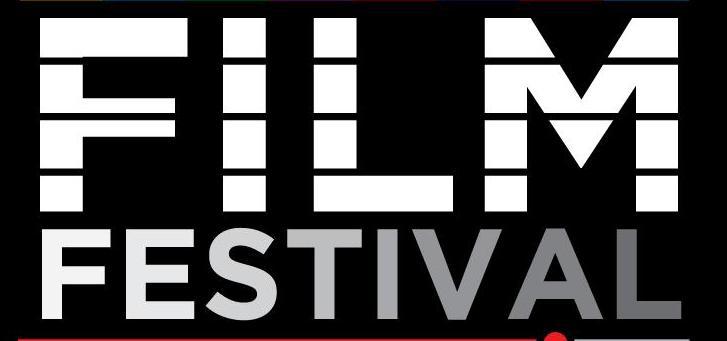Africa-Press – Lesotho. November 2024 marks a cultural milestone as the European Union (EU) Delegation to the Kingdoms of Lesotho and Eswatini, in partnership with Alliance Française de Maseru and Mbabane, hosts the first-ever binational European Film Festival.
This ground-breaking event, running from today, November 13 to November 30, 2024, offers residents of both countries the opportunity to experience the rich diversity of European cinema. Funded by EU with contributions from nine EU Member States and their cultural institutions, the festival highlights Europe’s commitment to cultural exchange and deeper diplomatic ties with Southern Africa (SA).
The festival’s inaugural lineup includes 31 films from 22 countries, covering Europe (Austria, Belgium, Cyprus, France, Germany, Italy, Ireland, Luxembourg, Poland, Spain, and Ukraine), Lesotho, Eswatini, other African countries (Ethiopia, Kenya, Mali, Morocco, and Senegal), and selections from Iran, Afghanistan, China, and Brazil.
This carefully curated selection reflects the EU’s dedication to fostering mutual understanding through shared artistic experiences and showcasing world cinema.
In her opening remarks, Her Excellency Paola Amadei, the EU Ambassador to Lesotho, expressed that the festival builds on the success of previous cultural initiatives. “The European Film Festival serves as a platform for cultural exchange and cinematic excellence. The festival will present a diverse selection of films that explore contemporary themes and reflect the vibrant cultures of both European and Basotho cinema, as well as global perspectives,” she stated.
Ambassador Amadei also emphasized the festival’s commitment to accessibility, highlighting initiatives to make screenings available to a broader audience, including children and rural communities. “This initiative aims to engage film enthusiasts nationwide and deepen our commitment to cinema production in Lesotho by expanding access to these films,” she added.
Audiences can look forward to a diverse program that features both contemporary films and classics, offering unique insights into Europe’s cinematic history and achievements. The lineup includes critically acclaimed films from prestigious film festivals, allowing viewers in Lesotho and Eswatini a rare opportunity to experience high-caliber European artistry.
Screenings will be held across multiple venues in Maseru, including Alliance Française from November 13-22, the National University of Lesotho (NUL) from November 19-22, and Café What on November 25, 26, and 28. These venues will transform into cultural hubs, providing a theater-like experience for film lovers, students, and the general public. To encourage participation, some screenings will be free of charge, aiming to attract diverse audiences and foster a community atmosphere.
Elisabeth Douillet, Director of Alliance Française de Maseru, highlighted the collaborative spirit behind the festival, noting that a range of local arts and cultural organizations played a significant role in shaping the event’s program. Key contributors include NUL, Limkokwing University of Creative Technology (LUCT), Sky Alpha HD, the People’s Matrix, and GEM Institute, all of which helped select an engaging line-up to resonate with local audiences.
In a celebration of local filmmaking talent, three films produced by Lesotho filmmakers with support from the Sound Connects Fund, an initiative by the Music In Africa Foundation and the Goethe-Institut, will be showcased. Funded by the ACP-EU Culture Programme, these films offer an authentic perspective on Lesotho’s culture, history, and contemporary issues.
The festival will open with A Wish for My Daughter, a powerful film produced by Lesotho’s GEM Institute, which delves into inheritance rights and the role of Basotho women in family and community structures. This film was soft-launched at the EU’s International Women’s Day event at NUL earlier this year, and it has since gained attention for its poignant storytelling.
Two other featured films by the Lesotho Rap Archives will highlight Lesotho’s music scene. Lerabeng la Mahlanya explores the journeys of Mahlanya and Morena Leraba, two musicians who have redefined the country’s contemporary music scene through the traditional genre of famo music. We Were Always Here – A Lesotho Hip Hop Story takes audiences into the evolution of Lesotho’s hip-hop culture, tracing its impact on local and broader artistic landscapes.
As excitement builds, the European Film Festival promises to enrich the cultural landscapes of Lesotho and Eswatini with its wide-ranging film selections, accessible screenings, and opportunities for audience engagement. By bringing European cinema closer to local audiences, the EU and its cultural partners offer a unique chance for viewers to experience the beauty, diversity, and unity that film can inspire.
The festival, running from today, November 13 to November 30, 2024, invites everyone to partake in this journey of storytelling and discovery. Through the universal language of film, audiences will be united in an unforgettable celebration of culture, diversity, and shared humanity.
For More News And Analysis About Lesotho Follow Africa-Press






